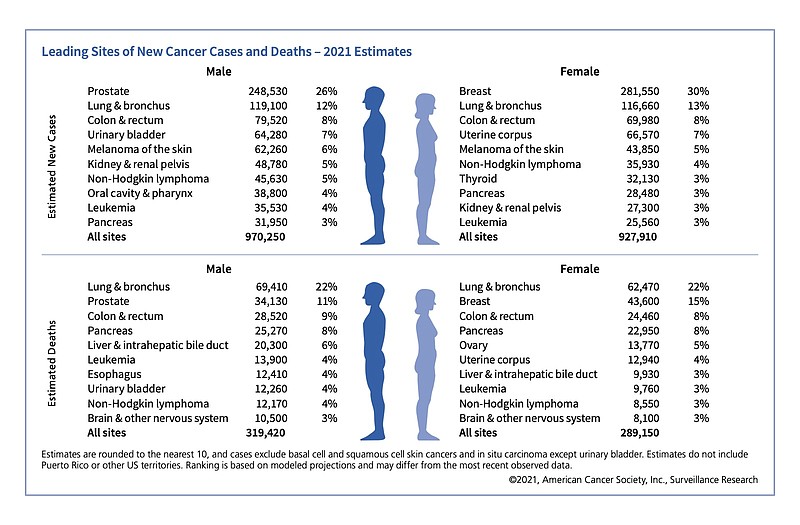After a decrease in the number of lifesaving cancer screenings during the COVID-19 pandemic, one local oncologist partnered with the Community Oncology Alliance and CancerCare to push the Time to Screen initiative throughout the state.
The Time to Screen initiative provides resources for adults encouraging them to get screenings for six cancers including breast, colorectal, cervical, prostate, lung and skin cancer.
Hot Springs oncologist Dr. Fred Divers said over the last 20 to 30 years there has been a slow but steady improvement in cancer survival rates and a lot of that is due to early detection screening measures.
"And so in the wake of the COVID pandemic, we saw a lot of these screening procedures get put off," Divers said. "(The COA and I) began to see this in our practices, you know, patients presented with later-stage disease because they hadn't had a mammogram in two years or a Pap smear in two years or colonoscopy."
Divers said Avalere, a company that provides data on health care, came out with data that showed an increase in patients with more advanced stages of cancer since the pandemic started.
"So we just wanted to educate patients so that they understood that this is still part of their health maintenance and health care," Divers said. "It would be unfortunate to survive a COVID pandemic, but be diagnosed with a late staged malignancy, you know, that, perhaps we may have been able to intervene and had a different outcome otherwise."
He added that cancer screenings probably declined during the pandemic because of the fear of going to a health care facility to receive those screenings.
Patients might have thought traveling to a clinic would increase their risk of exposure to COVID-19 and decided to put the screenings off until later. However, Divers warned putting the screenings off can be very dangerous.
"I just want to educate patients," Diver said. "Look, I mean, the reason those screenings are annual, and so forth, is because they do detect disease at an earlier stage. And if you put it off too long, then that window of opportunity may have closed."
Divers also mentioned that some elective procedures were also canceled during the pandemic, so some patients might not have been able to access procedures like colonoscopies.
He said as the state continues to vaccinate more and more people, it should be safe to get back out and get screened.
"I saw a gentleman yesterday, it was a smoker," Divers said. "And he had a screening CT scan done in late 2020. He had an 8-millimeter lung nodule in the right upper lobe of this lung. He appropriately followed up and a six-month follow-up CT showed that it increased in size to 13 millimeters. So we get a PET scan and it does light up. So that's going to be a stage one lung cancer, you know, and should be able to cure that probably 90% of the time."
Since the patient completed his follow-up screening, he has multiple options for treatment and avoided a stage three or stage four disease.
However, Divers also mentioned what happens if one doesn't go in for their screenings.
"I saw another lady who hadn't had her Pap smear in two years, and was having symptoms," Divers said. "And finally was forced to go in when her kidneys started shutting down, and she has, you know, an advanced cervical cancer with lung metastases, which is unlikely to be curable now, you know, and that's something that could have potentially been prevented, had we adhered to our screening guidelines."
When it comes to colonoscopies and checking for colorectal cancers, Divers said the statistics show there has been an increase in around 30% of patients with the late stage of the disease over the last year.
The Time to Screen initiative enlisted the help of Patti LaBelle to help spread the word about cancer screenings and the program is targeted at all 50 states.
"I mean, we want to maintain the survival improvements that we've seen over the years," Divers said. "And we don't want to see, when we look back, you know, five to 10 years from now, to see a dip in those overall survival curves for cancer-related mortality within the United States."
Although Time to Screen is a nationwide initiative, Divers is an Arkansas-based oncologist and said even as a heavily rural state, COVID has had a significant impact on rural counties.
He encouraged health care providers in Arkansas to provide access to screening procedures and for patients to continue to seek them.
"You know, as oncologists in the state of Arkansas, our goal is to cure as many as we can and help everyone to maintain quality and dignity in their life as long as they can," Divers said. "And we're much better equipped to do that with early detection and diagnosis."
